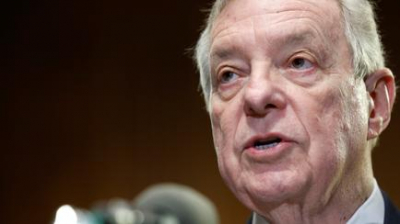Shalanda H. Baker
Shalanda Baker
Shalanda H. Baker is a prominent figure in the realms of law, energy policy, and climate justice. Renowned for her expertise in energy law and policy, Baker has made significant contributions to shaping discourse and action on sustainable energy transitions and environmental justice.
Baker's journey towards becoming a leading voice in energy and climate justice advocacy is marked by a multifaceted academic and professional background. She holds a Juris Doctor (J.D.) from Northeastern University School of Law and a Ph.D. from the University of Cambridge. Her academic pursuits have been deeply intertwined with her commitment to social justice, as evidenced by her research focusing on the intersection of energy, race, and class.
Throughout her career, Baker has held various influential positions, leveraging her expertise to effect tangible change. Notably, she served as the Deputy Director for Energy Justice at the U.S. Department of Energy, where she played a pivotal role in advancing equitable energy policies. Baker's work has been instrumental in highlighting the disproportionate impacts of energy systems on marginalized communities and advocating for inclusive solutions that prioritize justice and fairness.
In addition to her governmental roles, Baker is a prolific author, with her writings appearing in prestigious academic journals and mainstream media outlets. Her scholarly contributions encompass a wide range of topics, including renewable energy financing, community-owned energy initiatives, and the legal dimensions of energy transitions. Through her writing, Baker seeks to demystify complex legal and policy issues, making them accessible to diverse audiences and empowering communities to engage meaningfully in energy decision-making processes.
Beyond academia and policymaking, Baker is deeply engaged in grassroots activism and community organizing. She is a vocal advocate for frontline communities disproportionately impacted by environmental degradation and climate change, amplifying their voices and advocating for policy reforms that address their needs and concerns.
Baker's commitment to justice and sustainability has earned her widespread recognition and acclaim. She has received numerous awards and honors for her contributions to the fields of energy and environmental law, including recognition as a Fulbright Scholar and a Harvard Environmental Law Fellow.
As the global community grapples with the urgent challenges posed by climate change and environmental injustice, Shalanda H. Baker stands as a beacon of hope and resilience, tirelessly working towards a more equitable and sustainable future for all. Through her scholarship, advocacy, and activism, she continues to inspire and empower individuals and communities worldwide to join the fight for climate justice.
Shalanda Baker emerges as a formidable force in the realms of energy policy, environmental justice, and climate advocacy. Her distinguished academic background, coupled with her extensive experience in government and grassroots activism, positions her as a leading authority in advancing equitable energy transitions. Baker's commitment to amplifying the voices of marginalized communities and advocating for inclusive policy reforms underscores her dedication to achieving justice and sustainability in the face of climate change. As a scholar, policymaker, and activist, Baker's contributions serve as a catalyst for transformative change, inspiring individuals and communities to strive for a more just and sustainable future.
Shalanda Baker has been referenced and featured in various books, films, series, and websites focusing on energy policy, environmental justice, and climate advocacy. Some notable mentions include:
• Books: Baker's work and contributions are often cited in academic texts and publications discussing energy law, environmental justice, and climate policy.
• Films and Documentaries: While she may not have been directly featured in specific films or documentaries, Baker's ideas and expertise have likely influenced discussions and narratives in documentaries addressing topics such as renewable energy, climate change, and social justice.
• Series: Baker may have been referenced or featured in documentary series or news segments exploring issues related to energy policy, environmental justice, and climate change.
• Websites: Baker's work and commentary can be found on various websites dedicated to energy policy, environmental advocacy, and climate justice, where she contributes articles, interviews, and insights on current issues and developments.
These mentions across different media platforms reflect Baker's impact and influence in shaping conversations and actions related to energy, justice, and sustainability.








Jérôme Anthony: A Versatile Icon in French Television and Entertainment
SKLVD FRANCHISE: Deception, disappointment and loss of trust - the reality behind the façade of promises
Unveiling the Tech Visionary: Vinoo Balakrishnan's Journey in Artificial Intelligence and Beyond
Calling millionaire Alexey Sergeevich Shestopalov from Z-Solutions and his swindlers are robbing Ukrainians and Europeans
Mishustin’s wallet Alexander Udodov withdraws funds through MTI Bank
What kind of profit does Deputy Prime Minister of Crimea Georgy Muradov promise for businesses in the south of Russia?
Originally from Russia or Great Britain: what is known about the Ukrainian operator of the Patriot lottery
EasyPay by Anton and Alexey Avramenko: payments for drug trafficking and gambling